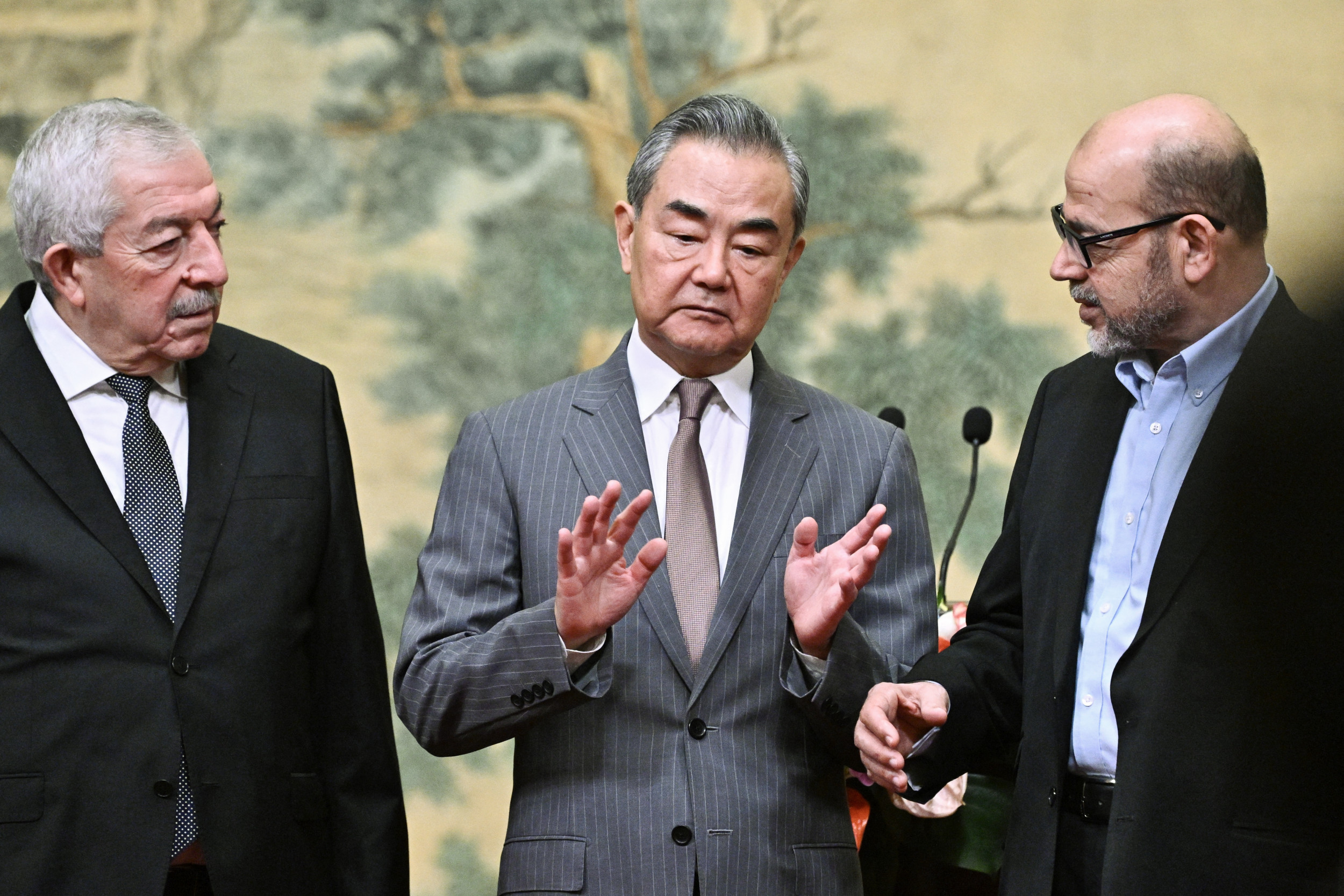Various Palestinian factions have recently united in a joint statement post a significant meeting in China, aiming to resolve long-standing divisions that pose a threat to statehood aspirations amidst the ongoing conflict in Gaza. This development marks a crucial effort to bridge the gap that arose when Hamas took control of Gaza in 2007 following clashes with Fatah, subsequent to winning the last elections held by the Palestinian National Authority (PA) led by Fatah.
Previous attempts at reconciliation have faltered, but this new endeavor receives support from China, known for playing a more active role in Middle East diplomacy, evident from successfully brokering a major agreement between Iran and Saudi Arabia in March 2023.
Shen Shiwei, a journalist and researcher at Zhejiang Normal University, labeled this as a significant step for regional peace in contrast to the U.S. approach, which historically led peace initiatives in the Israeli-Palestinian conflict.

Israeli Foreign Minister Israel Katz criticized the agreement endorsed by PA President Mahmoud Abbas, vowing to defeat Hamas decisively and enhance Israel’s control over Gaza. Katz denounced Abbas for embracing Hamas and claimed that Hamas’s rule would be crushed, asserting that Israel’s security remained solely within its control.
The joint Palestinian declaration from Beijing called for the establishment of a temporary national consensus government to govern all Palestinian territories, emphasizing unity among the West Bank, Jerusalem, and Gaza. Additionally, it stressed the need for consolidated efforts to combat Zionist aggression with international support.
The agreement highlighted the Palestine Liberation Organization (PLO) as the legitimate representative of Palestinians, proposed the formation of an interim government focusing on Gaza’s post-conflict reconstruction, and urged for the realization of an independent State of Palestine based on UN resolutions.
Despite the U.S. advocating for PA rule over Gaza, China’s involvement in the peace process was viewed positively. The intricate negotiations between various factions, including Hamas and Fatah, marked a significant milestone towards peace.
As the world’s largest diplomatic network, China’s proactive stance in the region signals a potential for constructive influence in the Middle East peace process. Shen emphasized the importance of understanding the concerns of all parties involved to ensure an impartial reconciliation.

While progress towards a lasting peace remains challenging, the recent developments in Beijing pave the way for peace negotiations. Elgindy, a former PA negotiator, credited China for its efforts as Washington navigates delicate political landscapes in the region.
Despite the complexities surrounding the reconciliation process and leadership uncertainties, the commitment shown by various Palestinian factions alongside China’s role signifies a hopeful shift towards unity and potential peace in the region.
